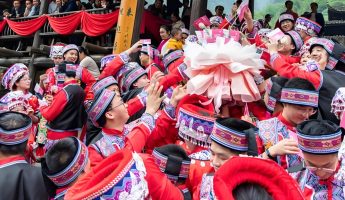Feng Shui, as a cultural phenomenon deeply rooted in the land of China, is closely connected to traditional Chinese culture and people’s daily lives. It constitutes a unique perspective for people to understand the interaction between nature, environment, and human beings. Feng Shui is an academic field that conducts in-depth research and systematic analysis of this cultural phenomenon, with the aim of exploring the deep meaning of traditional Chinese culture, clarifying its ideological framework and practical trajectory.
Recently, Peking University’s Yi Xue Society invited a Taiwanese feng shui master to give a lecture. The popularity of the lecture reflects students’ curiosity and exploratory desire for unknown fields, as well as the widespread interest in feng shui culture both inside and outside the academic community. However, the lecture content tends to exaggerate the mysterious power of Feng Shui rather than explore it based on academic research, which makes people ponder: should we have a clearer boundary between “faith” and “academia”?
The reason why geomantic omen has a broad foundation among the people is that it carries the unique behavior ethics, aesthetic pursuit and unique understanding of life of the Chinese people. The continuation of this traditional concept and way of life has its profound cultural soil and social foundation. But Feng Shui requires us to analyze its underlying ideological logic and practical value with a more rational and scientific attitude, rather than just blindly worshiping its mysterious power.
Similarly, we should maintain a cautious and critical attitude towards the acceptance of foreign science and culture. Science is not a universal key, it also has its limitations and historical background. In today’s increasingly globalized world, how to find a balance between tradition and modernity, East and West, and build our own knowledge system is a common challenge we face.
As an important battlefield for academic research and knowledge dissemination, higher education institutions should uphold academic purity and rigor, and avoid becoming a stage for any form of superstition or personal heroism. For the study of Feng Shui and Feng Shui, in-depth exploration based on historical documents, field investigations, and scientific analysis should be encouraged to promote cultural inheritance and innovation, and contribute to social harmony and progress.
In short, whether it is Feng Shui culture or Western science, we should approach and accept it with an open and rational mindset. While respecting tradition, we also strive to pursue truth and progress, and strive to find our own path in the integration of diverse cultures.



